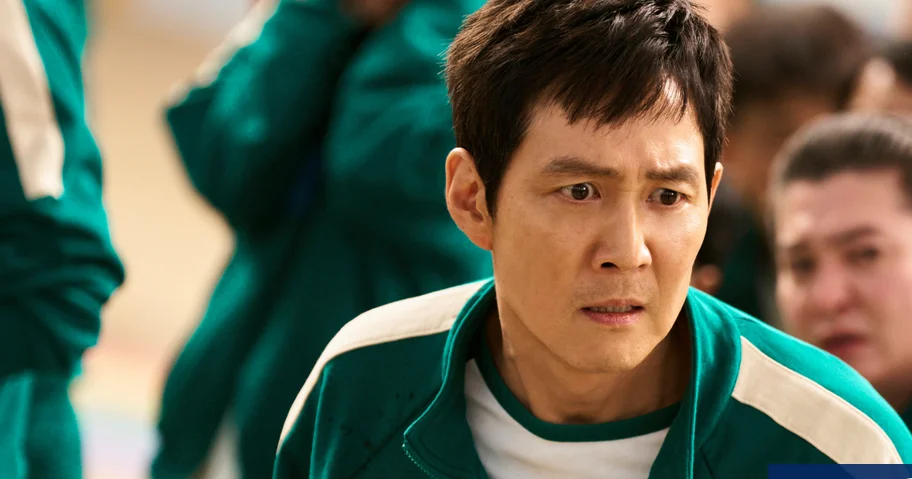One of Hollywood’s many bad habits is the bloat caused by splitting a story in half in a bid to double the profits (cough, cough, Dune and Wicked). Squid Game was always a perfect one-series story. Gambling addict Seong Gi-hun (Lee Jung-jae) became Player 456, a desperate man who attempts to pay off his debts by taking part in a twisted underground fight-to-the-death competition. He beats the odds by surviving every one of its potentially fatal playground games. When it first appeared, it was horrifying, it was thrilling, and its satirical edge – which examined capitalism and class in South Korea – was clever and acidic. The world took to it in vast numbers.
That it became one of Netflix’s most successful, and therefore most profitable, series of all time placed it in a creative bind. Inevitably, it was renewed for a second and then third series, but even before that, its satirical edge was stress-tested by Squid Game: The Challenge, a real gameshow spinoff. That was far more entertaining than it had any right to be, but its win-big mentality did rather undermine the point of the original, which took aim at the inherent unfairness of an exploitative economic system.
But that was a diversion, and its many millions of viewers will be keen to see if Squid Game can recapture its magic, even with a return that seems unnecessary at least in narrative terms. For the first three of these seven new episodes, it struggles to find its purpose. It is three years after Gi-hun walked away with the money, and he is hellbent on seeking revenge on the super-rich puppet-masters who engineered its deadly spectacle. He is chasing shadows, using some of his vast cash reserves (or “blood money”) to fund a mercenary army. He joins forces with the former detective Hwang Jun-ho, who is still trying to find his brother, to look for the Salesman, the man in the suit who asks strangers to play ddakji with him before recruiting them as players. Months pass, and the dead ends mount.
The early episodes feel like delaying tactics, and considering that this is Squid Game, it is all rather ordinary. There are chase scenes, car crashes and gun fights. The satirical element has been replaced by a quest for vengeance. It is entertaining enough, but it does lead to an uncomfortably bloodthirsty sensation, of willing everyone to get back to the sports day with a body count. Given that the last episode feels very much like the halfway point in the story, which will continue with a final series next year, this dragging of heels is gratuitous.
It gets better. When Gi-hun finally becomes Player 456 again – and this is revealed in the trailer, which seems to have an understanding of the need for the games and the structure provided by them – it is a welcome kick up the backside. Here, it begins to embrace the familiar, and make enough changes to freshen everything up. It starts to go deeper into the lives of the masked soldiers who enforce the rules. There are new players, and so a whole new cast to either root for or despise. The idea of expensive healthcare, and the conflation of wealth and health, is foregrounded, which is timely. It introduces a mother and her son – as both Squid Game: The Challenge and the last series of The Traitors know, this dynamic is dramatic gold. In other cases, it makes the villains cartoonishly awful. A rapper named Thanos is one of the most irritating characters to appear on TV in recent times.
One of the preoccupations of Squid Game is human nature. As a species, are we fundamentally decent and magnanimous, or are we craven, greedy and selfish? The Salesman reminds us of the theme early on, when he takes two bags of shopping to a park mostly populated by the homeless and others down on their luck. He offers them a choice: bread, or a scratch card? The certainty of a meal, or the possibility of cash? Most take the risk, not knowing the outcome. Gi-hun already knows the outcome of the games, or at least he thinks he does. But whether he can persuade the others what it actually means to play when the odds are stacked against you is another story.
For all of its unevenness, particularly as it is warming up to the proper action, there is one big twist that really works, though whether it is distinct enough from what happens in the first series is unclear. And when you think you know where it is going, it turns away from its trajectory, upping the ante and finding its feet. What a shame it takes so long to get there though. Series three has some cleaning up to do.
Squid Game is on Netflix now.


